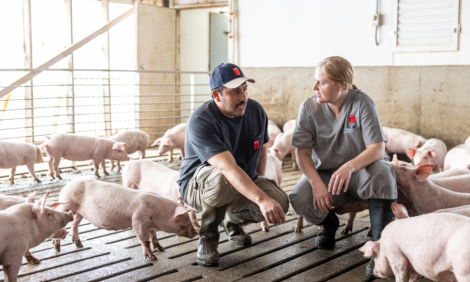



US consumer interest in alternative proteins growing
New study shows a big jump in consumer interest in alternative proteinsA 2021 study commissioned by C.O.nxt, a Wisconsin-based marketing communications firm, found that 70 percent of consumers had tried or were going to try alternative proteins, compared to just 42 percent of consumers in 2019. Moreover, some in the 70 percent group intended to try alternative proteins again.
These are but two key findings of the study Marcy Tessman, C.O.next CEO, shared with Global Ag Media’s Sarah Mikesell during the 2022 Cattle Industry Convention and Trade Show in Houston, Texas, in February.
“This was a repeat study of one that we did in 2019,” said Tessman. “We wanted to see the real trends happening, what’s happened through the pandemic and with consumer behavior. The study included over 1,000 people. We were able to look at different age groups and break it down by segments and by rural, suburban and urban markets.”
Tessman added that while the research didn’t indicate why the near doubling of alternative protein consumers occurred, it is apparent meat alternatives were more widely available in 2021 compared to 2019.
“We know that as alternative protein has become available across all types of products, it’s also become more available in grocery stores,” Tessman added. “That availability has raised its own awareness with each audience.”
Audiences, or age groups, were especially apparent in the research, Tessman noted. She said one takeaway from the research was that it focused on Gen Z, the 18- to 29-year-old age group, the largest of the age groups.
“What we found in this age group, those committed to alternative proteins, is that taste is not number 1 for them and it’s not an important aspect,” said Tessman. “One other finding that helps us, and it’s a tribute to all the things we know about the meat industry, is that across all age groups, there is a need for more transparency. They would like more scientific information. They want to know impacts on the environment.
“The Gen Z category believes as a priority, climate change, environmental concerns, water and animal welfare are high on their priority list. In the end, the real benefit is that this age group is also interested in balance, which means they’re not going to really change completely. But the whole idea of the flexitarian is very common in that age group.”
Another trend worth noting is that urbanites are more likely than others to consider alternative health tastes. Tessman said blended products, especially blended burgers are one thing urban consumers may already be eating.
“Blended products are partially animal protein and partially artificial protein coming together in one product,” said Tessman. “It remains to be seen how this trend will grow.”
She added that this is only one study and other studies can add to the balance of learning how alternative proteins may affect the conventional protein market.
Learn about the study more here.






